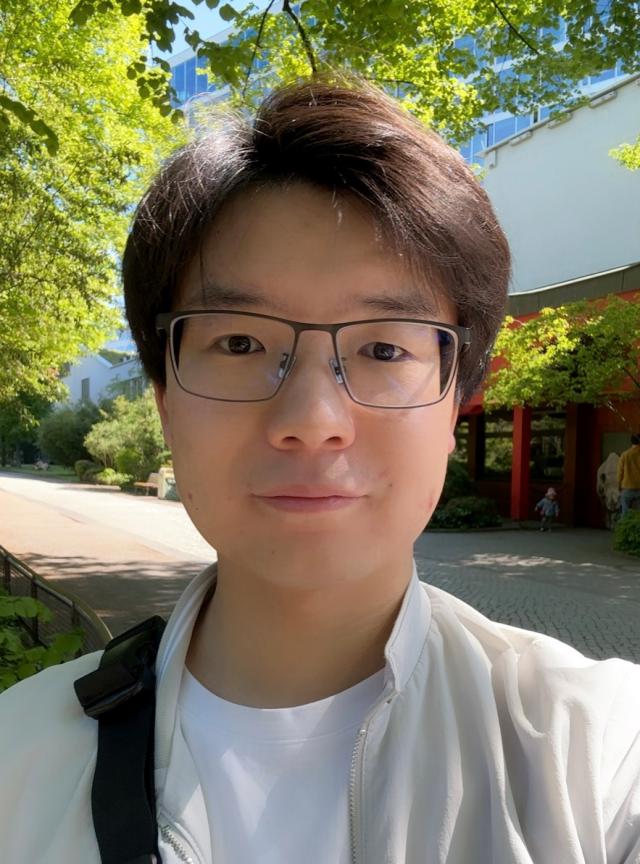
|
基本信息Personal Information
副教授(特聘) 硕士生导师
性别 : 男
毕业院校 : 武汉大学
学历 : 博士研究生
学位 : 管理学博士学位
在职信息 : 在职
所在单位 : 公共管理学院
入职时间 : 2022年07月01日
学科 : 土地资源管理
办公地点 : 南望山校区北区公共管理学院
Email :
教师其他联系方式Other Contact Information
通讯/办公地址 :
邮箱 :
个人简介Personal Profile
张彬,博士,特任副教授,硕士生导师,CSC-DAAD联合资助博士后(柏林洪堡大学地理系),地大学者青年优秀人才。研究方向为土地利用变化分析与模拟技术。张彬博士近五年来在地理模拟领域发表学术论文37篇(SSCI/SCI收录25篇),其中一作/通讯论文12篇(10篇为JCR 1区论文)。参与获得国家发明专利,参与出版《土地信息学》教材。主持国家自然科学基金、教育部人文社会科学研究项目、湖北省自然科学基金和自然资源部重点实验室开放课题等研究项目。担任Landscape and Urban Planning、Cities、International Journal of Geographical Information Science、GIScience & Remote Sensing、Environment and Planning B-Urban Analytics and City Science和Innovation Discovery等期刊审稿人。
学术主页
ORCID:https://orcid.org/0000-0003-1461-660X
《Modeling Application and Sustainable Management of Urban Growth and Land Use》
——Sustainability专刊客座编辑,欢迎投稿!
专刊简介见:https://www.mdpi.com/journal/sustainability/special_issues/QA5A7CTC04
主持/参与科研项目
1. 国家自然科学基金青年项目,基于分层自组织的城市群土地利用变化模拟预测(42401309),2025-01至2027-12,在研,主持;
2. 教育部人文社会科学研究青年基金,城镇扩展的自组织机制解析与空间精细化模拟(23YJC630223),2023-07至2026-05,在研,主持;
3. 湖北省自然科学基金青年项目,耦合规模和格局自组织的大尺度-精细化城镇扩展模拟——以长江中游城市群为例(2023AFB022),2023-07至2025-06,在研,主持;
4. 自然资源部法治研究重点实验室开放课题,开发强度优化导向下的城市更新与空间治理——以武汉市为例(CUGFZ-2207),2023-01至2024-01,结题,主持;
5. 国家社会科学基金重大项目,长江经济带耕地保护生态补偿机制构建与政策创新研究(18ZDA053),2018-11至2023-11,在研,参与;
6. 国家自然科学基金面上项目,基于多目标决策的流域型城市群建设用地减量发展格局、响应与调控:以长江中游城市群为例(42371286),2024-01至2027-12,在研,参与;
7. 国家自然科学基金面上项目,顾及时空非平稳特征的城市群土地利用演变元胞自动机模型构建(42171411),2022-01至2025-12,在研,参与;
8. 自然资源部国土空间规划监测评估预警重点实验室开放课题,顾及趋势性和偶发性的城市扩展元胞自动机模型构建及模拟(LMEE-KF2021006),2022-01至2022-12,结题,参与;
9. 自然资源部华南热带亚热带自然资源监测重点实验室开放课题,顾及外部扩展和内部更新的珠三角城市群建设用地空间发育模式研究(2023NRMK02),2023-01至2023-12,结题,参与;
10. 自然资源部超大城市自然资源时空大数据分析应用重点实验室开放课题,顾及空间多尺度效应和时间依赖性的城市土地时空演变模拟(KFKT-2022-10),2022-05至2023-04,结题,参与;
11. 民权县国土空间总体规划,2023-06,在研,参与。
代表作(*为通讯作者)
1. Bin Zhang, Xuecao Li, Haijun Wang, Sanwei He, Haoran Zeng, Xiaoxu Cao, Youcheng Song, Chih-Lin Tung, Shougeng Hu*. 2024. Modeling self-organized urban growth by incorporating stakeholders’ interactions into the neighborhood of cellular automata. Cities, 149, 104976.
2. Bin Zhang, Shougeng Hu*, Haijun Wang, Jianxin Yang, Zhenzhen Wang. 2024. Incorporating spatial heterogeneity to model spontaneous and self-organized urban growth. Applied Geography, 163, 103196.
3. 张彬, 胡守庚, 王海军, 郭颖, 童陆亿, 夏天顺. 2024. 精细刻画城镇自组织扩展过程的CA-ABM耦合模拟及预测模型. 测绘学报, 53(7), 1429-1443.
4. Bin Zhang, Shougeng Hu, Haijun Wang*, Haoran Zeng. 2023. A size-adaptive strategy to characterize spatially heterogeneous neighborhood effects in cellular automata simulation of urban growth. Landscape and Urban Planning, 229, 104604.(ESI高被引论文)
5. Haoran Zeng, Bin Zhang*, Haijun Wang. 2023. A hybrid modeling approach considering spatial heterogeneity and nonlinearity to discover the transition rules of urban cellular automata models. Environment and Planning B-Urban Analytics and City Science, 50(7), 1898-1915.
6. Sanwei He, Shifa Ma, Bin Zhang*, Guangdong Li, Zhenjie Yang. 2023. Early warning of the carbon-neutral pressure caused by urban agglomeration growth: Evidence from an urban network-based cellular automata model in the greater bay area. Remote Sensing, 15(2), 338.
7. Bin Zhang, Chang Xia*. 2022. The effects of sample size and sample prevalence on cellular automata simulation of urban growth. International Journal of Geographical Information Science, 36(1), 158-187.
8. Bin Zhang, Haijun Wang*. 2022. Exploring the advantages of the maximum entropy model in calibrating cellular automata for urban growth simulation: a comparative study of four methods. GIScience & Remote Sensing, 59(1), 71-95.
9. Bin Zhang, Haijun Wang*. 2021. A new type of dual-scale neighborhood based on vectorization for cellular automata models. GIScience & Remote Sensing, 58(3), 386-404.
10. Chang Xia, Bin Zhang*. 2021. Exploring the effects of partitioned transition rules upon urban growth simulation in a megacity region: a comparative study of cellular automata-based models in the Greater Wuhan Area. GIScience & Remote Sensing, 58(5), 693-716.
11. Haijun Wang, Bin Zhang*, Chang Xia, Sanwei He, Wenting Zhang. 2020. Using a maximum entropy model to optimize the stochastic component of urban cellular automata models. International Journal of Geographical Information Science, 34(5), 924-946.
12. Bin Zhang, Haijun Wang*, Sanwei He, Chang Xia. 2020. Analyzing the effects of stochastic perturbation and fuzzy distance transformation on Wuhan urban growth simulation. Transactions in GIS, 24(6), 1779-1798.(获该期刊年度高被引论文奖)
13. Haijun Wang, Jiaqi Guo*, Bin Zhang, Haoran Zeng. 2021. Simulating urban land growth by incorporating historical information into a cellular automata model. Landscape and Urban Planning, 214, 104168.
14. 谢志文, 王海军*, 张彬, 黄鑫鑫. 2020. 城市扩展元胞自动机多结构卷积神经网络模型. 测绘学报, 49(03), 375-385.(《测绘学报》2022年度优秀论文,知网高PCSI论文)
15. 王海军, 张彬, 刘耀林, 刘艳芳, 徐姗*, 邓羽, 赵雲泰, 陈宇琛, 洪松. 2018. 基于重心-GTWR模型的京津冀城市群城镇扩展格局与驱动力多维解析. 地理学报, 73(06), 1076-1092.(2021年度F5000中国精品科技期刊顶尖学术论文,知网高PCSI/高被引/高下载论文)
发明专利
1. 王海军, 张彬, 夏畅, 刘艺明, 张安琪. 一种基于最大熵原理的城市CA模型构建方法, 2021-04-02, 中国, CN201711484065.8
软件著作权
1. 城市多模式扩展模拟CA软件[简称:MaxEnt-AP-CA] V1.0, 2023SR0619181, 2023-4-3.
2. 城市扩展深度学习CA软件[简称:Deep-CA] V1.0, 2023SR0512950 , 2023-2-20.
团队介绍Research Group
LUS(Land Use Science)团队
可搜索添加“南望LUS”公众号了解团队信息。张彬博士为LUS(Land Use Science)团队成员,团队长期致力于土地资源管理与城乡高质量发展研究,重点关注国土空间规划治理、自然资源利用、保护与政策研究,团队老师背景包括土地资源管理、城乡规划、地理学、经济学、社会学等,拥有国家人才计划领军人才等。

